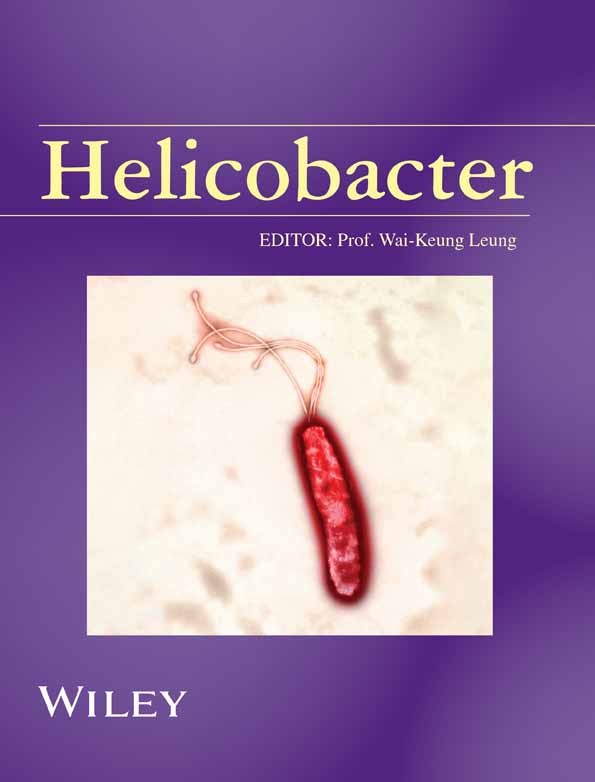Pretreatment Antibiotic Resistance in Helicobacter pylori Infection: Results of Three Randomized Controlled Studies
Abstract
Background. Although combinations of antibiotics and antisecretory drugs are useful for treatment of Helicobacter pylori infection, treatment failure is common. The aim of this study was to evaluate the relation between pretreatment antibiotic resistance and outcome by using six different treatment regimens for H. pylori infection.
Patients and Methods. Three hundred sixty-nine consecutive H. pylori–infected patients with dyspeptic symptoms were enrolled in three consecutive randomized, controlled, single-center clinical trials: trial A, 128 patients; trial B, 125 patients; trial C, 116 patients. Treatments consisted of (A) a 15-day course of dual therapy (omeprazole, 20 mg bid, and amoxicillin, 1 gm bid, or clarithromycin, 500 mg tid) (OA vs OC); (B) a 7-day triple therapy of omeprazole, 20 mg bid, plus metronidazole, 500 mg bid, and amoxicillin, 1,000 mg bid, or clarithromycin, 500 mg tid (OMA vs OMC); or (C) omeprazole, 20 mg bid, plus metronidazole, 500 mg bid, plus tetracycline, 500 mg qid, or doxycycline, 100 mg tid (OMT vs OMD). Diagnostic endoscopy was made in all patients before and 5 to 6 weeks after therapy. Six biopsies were taken from each patient for histology, rapid urease test, and H. pylori culture; antibiotic susceptibility testing was performed using the E-test method.
Results. Overall cure rates were poor for both dual therapies OA and OC (38% and 37%, respectively) and for triple therapies OMA, OMC, and OMD (57%, 55%, and 58%, respectively). The OMT combination was successful in 91% (95% confidence interval [CI], 80.4%–97%). Metronidazole resistance was present in 29.7% (95% CI, 24%–35%), amoxicillin resistance was present in 26% (95% CI, 21%–32%), clarithromycin resistance was present in 23.1% (95% CI, 18%–29%), tetracycline resistance was present in 14% (95% CI, 10%–20%), and doxycycline resistance was present in 33.3% (95% CI, 21%–47%). Antibiotic resistance markedly reduced the cure rates and accounted for most of the poor results with the triple therapies: 89% versus 23%; 77% versus 26%; 100% versus 60%; and 67% versus 23% for OMC, OMA, OMT, and OMD, respectively. OMT appeared to be the best because of the high success rate with metronidazole-resistant H. pylori (71%) and in low-level tetracycline resistance.
Conclusions. Pretreatment antibiotic-resistant H. pylori can, in part, explain the low cure rate of the infection and the variability in outcome in reported trials.




